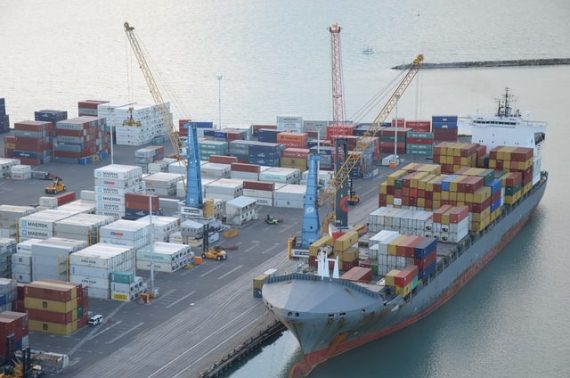-
Twenty-two countries including the US, Japan, Australia and Canada have signed the Clydebank Declaration
-
The declaration seeks to establish at least six green shipping corridors—zero-emission maritime routes—between two or more ports by 2025 and “many more” by 2030
-
Signatories pledge to establish partnerships, participated in by ports, operators and others along the value chain, to accelerate the decarbonization of the shipping sector and its fuel supply through green shipping corridor projects
Twenty-two countries including the US, Japan, Australia and Canada signed the Clydebank Declaration on November 10 to establish at least six green shipping corridors—zero-emission maritime routes—between two or more ports by 2025 and “many more” by 2030, the UK COP26 presidency announced.
The Clydebank Declaration was signed at the COP26 (Conference of the Parties 26) global climate summit held in Glasgow in November 2021. Under the declaration, the signatories agree to work together to establish green shipping corridors.
“It is our collective aim to support the establishment of at least 6 green corridors by the middle of this decade, while aiming to scale activity up in the following years, by inter alia supporting the establishment of more routes, longer routes and/or having more ships on the same routes. It is our aspiration to see many more corridors in operation by 2030,” the signatories to the declaration said.
The global maritime shipping sector accounts for 2.5% to 3% of global CO2 combustion emissions, according to S&P Global Platts Analytics.
To pursue these goals, signatories pledge to establish partnerships, participated in by ports, operators and others along the value chain, to accelerate the decarbonization of the shipping sector and its fuel supply through green shipping corridor projects.
They also vow to address barriers to the formation of green corridors through regulatory frameworks, incentives, and information sharing or infrastructure
The signatories will also include provisions for green corridors in the development or review of national action plans, and widely consider environmental impacts and sustainability when pursuing green shipping corridors.
Voluntary participation by operators is a significant element for successful green shipping corridors, the declaration said.
For greater clarity, all vessels transiting a green corridor would not be required to be zero emissions or to participate in the partnerships, it added.
To support the establishment of green corridors, signatories recognized that fully decarbonized fuels or propulsion technologies should have the capability to not add additional greenhouse gasses to the global system through their lifecycle, including production, transport or consumption.
Over 200 businesses across the shipping value chain have committed to scaling and commercializing zero emission vessels and fuels by 2030, COP26’s High Level Champion Nigel Topping said during a press conference.
“And on the demand side, Amazon, Ikea, Michelin, Unilever, Patagonia and many others have announced they will only buy zero carbon freight from 2040,” he said.
Signatories to the Clydebank Declaration are Australia, Belgium, Canada, Chile, Costa Rica, Denmark, Fiji, Finland, France, Germany, Ireland, Italy, Japan, Marshall Islands, Morocco, Netherlands, New Zealand, Norway, Spain, Sweden, the UK and the US.





